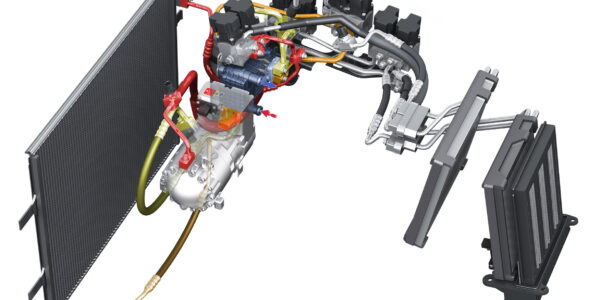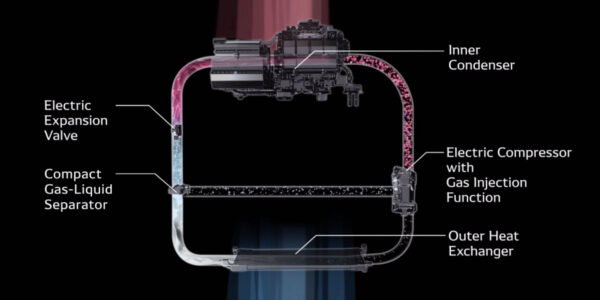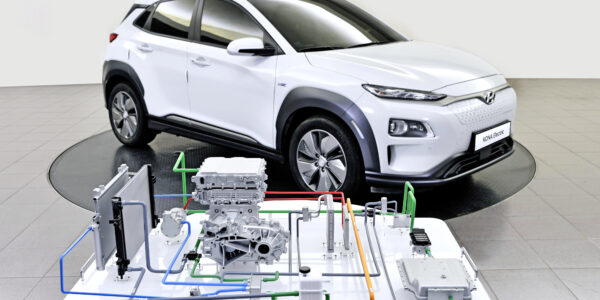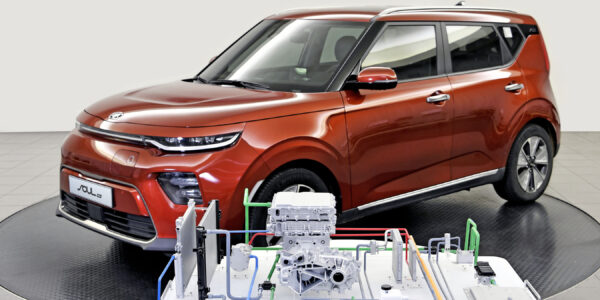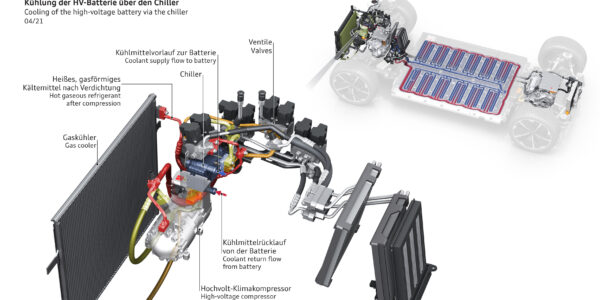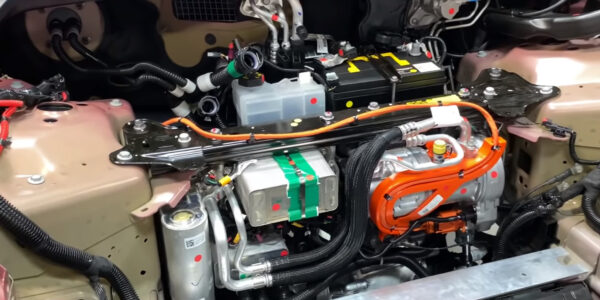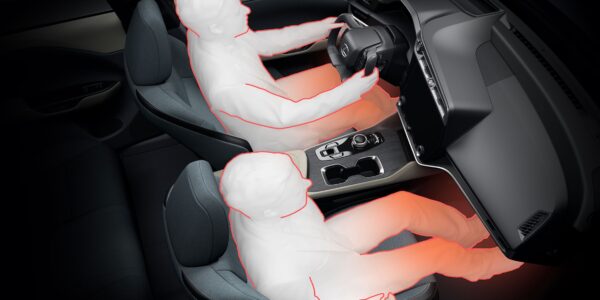Daikin R474a (A2L) approved for EV heat pumps
- PostedPublished 28 March 2023
Daikin, the only company globally to manufacture both air-conditioning systems and refrigerants, has developed a low-GWP refrigerant designed for electric vehicles (EVs) equipped with heat pumps.
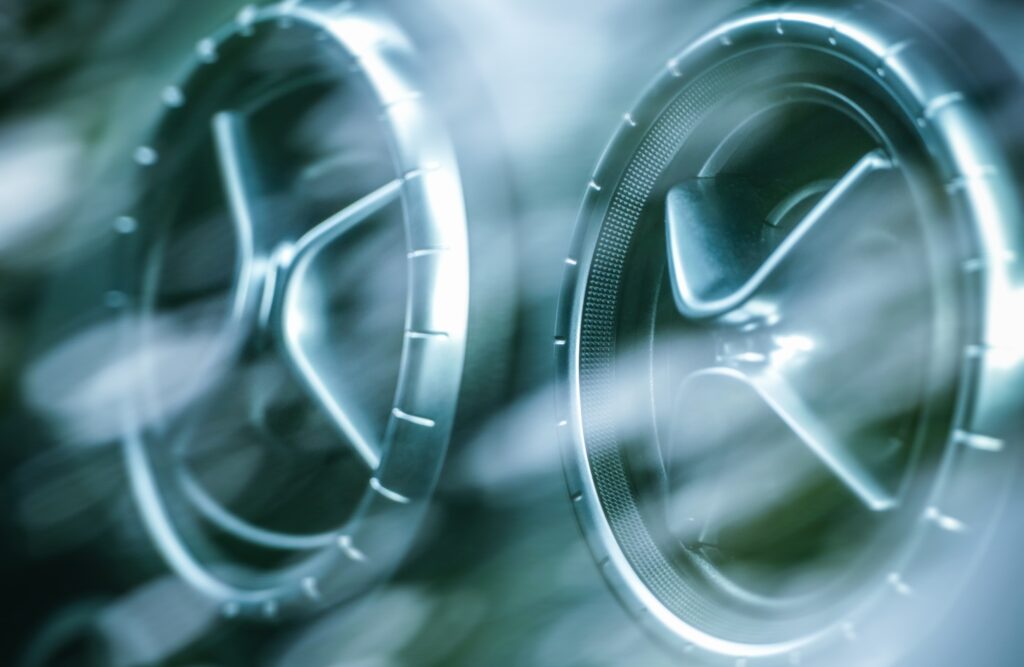
R474A (D1V-140) has been developed as an alternative to R1234yf for improved heat pump performance in EVs, particularly in colder climates, where they can lose up to 20 per cent of driving range due to the energy consumption required for cabin comfort and battery thermal management.
Testing has shown that when temperatures drop from 0°C to -10°C the capacity of a heat pump running R1234yf is reduced by 40 per cent, a recognised problem among car manufacturers.
R474A is claimed to deliver increased cooling and heating capacity with superior efficiency, significantly improving battery performance.
R474A has a boiling point of about -40°C, 10-15 degrees lower than R1234yf, meaning less power is required for compression.
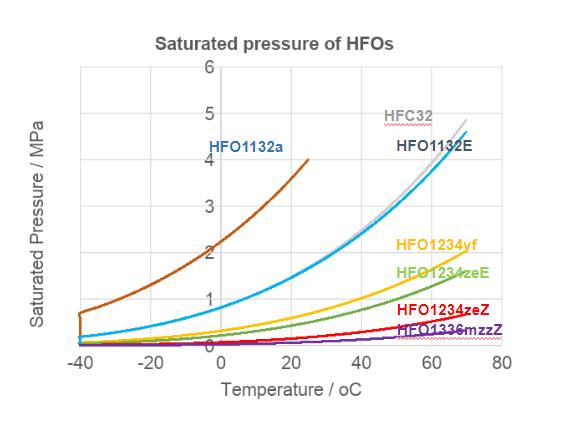
It has been estimated that urban battery range could improve by as much as 50 per cent when running R474A, while still providing good performance in warmer climates.
The American Society of Heating, Refrigerating and Air-Conditioning Engineers (ASHRAE) has given R474A an A2L classification (mild flammability).
R474A blends 77 per cent R1234yf with 23 per cent HFO-1132(E), a new and unique molecule which ASHRAE has separately approved and designated with a B2 rating (high toxicity and low flammability).
Like YF, R474A has a global warming potential of less than one, meeting climate protection goals inh the United States, European Union and elsewhere.
Daikin holds the patents for R1132(E) and so controls production of R474A.
The refrigerant is suitable for use in the cabin, and in direct expansion systems. It provides passenger compartment and battery heating at temperatures as low as -30°C while maintaining positive pressure.
Daikin has since invested $75 million to start production of R474A at its Japanese plant in Yodogawa, Osaka by 2027.
Initially, prior to mass production, the company will have a test plant operational by 2024.
However, a potential PFAS ban in Europe that threatens to outlaw R1234yf and blends that contain it could scupper R474A before it gains traction.
- CategoriesIn SightGlass
- Tagselectric vehicles, EV, heat pump, R474a, refrigerant, SightGlass News Issue 28

